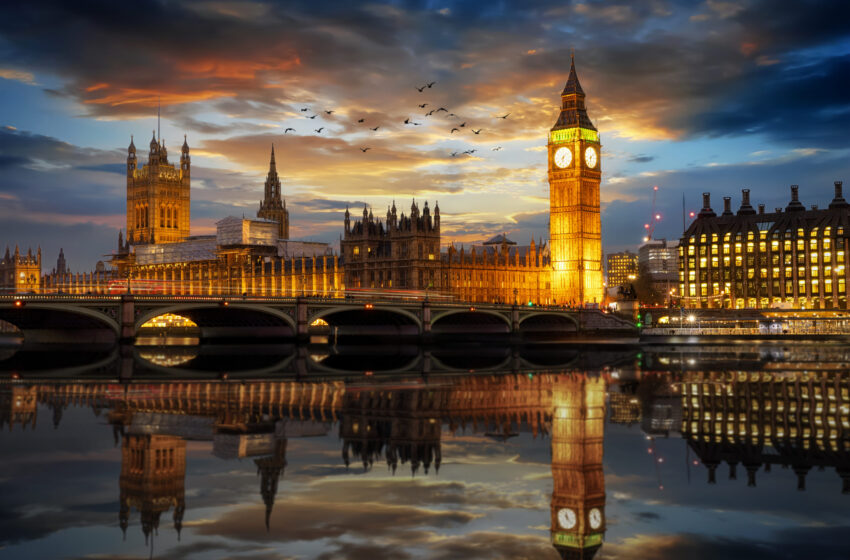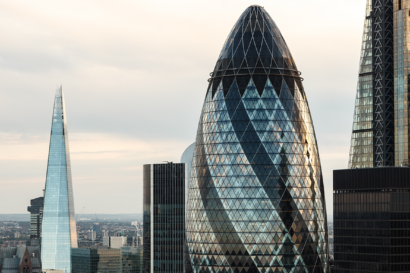AG INSIGHT | 18/10/2023
Dividing lines: climate policy at the party conferences

Kate Young and Alex Hutchinson from the Aldersgate Group’s Public Affairs team reflect on this year’s party conference season and what it means for ambitious climate and environmental policy advocacy in the year ahead.
As the dust settles on party conferences and the Aldersgate team return to Westminster after decamping to Manchester and Liverpool, we share reflections on what we learned at the Conservative and Labour party conferences and what this means for the UK’s net zero policy.
Political party conferences serve many purposes. They raise party revenues; help gain media coverage on new policy announcements and inspire and mobilise the party membership. The end of conference season this year has effectively fired the starting pistol on a year-long general election campaign, and the two leading parties seem eager to draw clear differentiating lines between each other ahead of ballot boxes opening. One such line is the emerging political fight on the UK’s approach to net zero and environment policy.
The Conservative Party Conference
The Conservatives were first out of the block on this ahead of their trip to Manchester. The Prime Minister brought forward a press conference on 20th September which saw him change his Party’s strategy for delivering net zero. At the conference, the sentiment was shared and solidified by the Secretary of State for Energy Security and Net Zero during her main hall speech. While still committing to reaching net zero emissions by 2050, the Conservative Party maintained that the decisions had to be taken which were the most beneficial for families struggling with the costs of transition. In fact, the theme of “taking the public” along with net zero decisions was prominent across the conference, both on the main stage and at fringe events. This is something advocates of net zero within the Party have long echoed – but is now being used across the Party sometimes through the guise of justifying rollbacks in policy ambition.
Although the key themes of the conference were infrastructure, health and education policy, grid connections were also repeatedly spoken about at various events. The Conservative voices at panel events pointed to the Government’s recent announcement to this end – that the Chancellor and Energy Secretary will soon bring forward “comprehensive new reforms to energy infrastructure”. The Energy Secretary was keen to stress that electrification will be key in meeting the UK’s targets, which means tackling the grid.
There were passionate defences of net zero from junior ministers and senior backbenchers at fringe events, away from the main stage. The Conservative Environment Network hosted Aldersgate Group Chair Theresa May for the Conservative Environmental Leadership Reception, where she stressed that net zero is not a cost to be minimised but the growth opportunity of the century. It is clearly still a point many are trying to communicate to the leadership within the Party.
The Labour Party Conference
Whilst Conservative frontbenchers were disputing whether net zero will hold back the economy, Labour’s conference showed they unanimously view net zero as the means to revitalise the UK’s economy. The need to tackle climate change appeared in hundreds of fringe events and across many of the Shadow Cabinet speeches, including in the Leader’s speech by Starmer. At a packed fringe event, Shadow Secretary of State of Climate Change and Net Zero Ed Miliband noted that in the Labour Party, there is a weakness in failing to talk about their agenda, but this could not be further from the truth on net zero. Miliband set out a detailed plan to double onshore wind, insulate 19 million homes, create GB Energy, introduce a new National Wealth Fund, and mobilise the whole country to reach net zero. He suggested that Labour are keen to engage with Conservatives over net zero policy – calling on the Conservatives to “bring on the fight”.
Prominent themes from across the conference were the ability for net zero to lower consumer bills, and through renewable energy development, create regionally dispersed jobs through industrial decarbonisation, and bolster the UK’s energy security. Shadow Ministers were honest about the challenges they were likely to face if assuming government next year, with complexities already arising in expanding the UK’s grid capacity – this stimulated much debate about the best methods for acquiring local consent (or whether this should even be necessary). The US Inflation Reduction Act also came up frequently, with Shadow Ministers suggesting they would respond decisively with subsidies and a clear policy framework to ensure foreign direct investment flows to the UK.
Jill Rutter from the Institute for Government gave sage advice to Shadow Minister Alan Whitehead and his Party – resist the urge to do everything all at once, by making clear priorities and avoiding distractions. Clearly, Labour is already laying the groundwork to ensure, if they take office, they can move as quickly as possible. The question on all lips at the Labour conference was not whether to, but how.
Concluding reflections
Overall, it was evident that the role of advocacy at political party conferences has continued to grow as we lurch towards an election – as seen by the huge turnout of businesses. For the Aldersgate Group this means continuing to ramp up engagement to advocate for an increasingly sustainable and competitive economy. This remains a crucial time to get policy recommendations in front of the leading political parties, in order to strengthen the ambition in their manifesto and highlight the benefits that can be gained in the first 100 days of a new Government.



